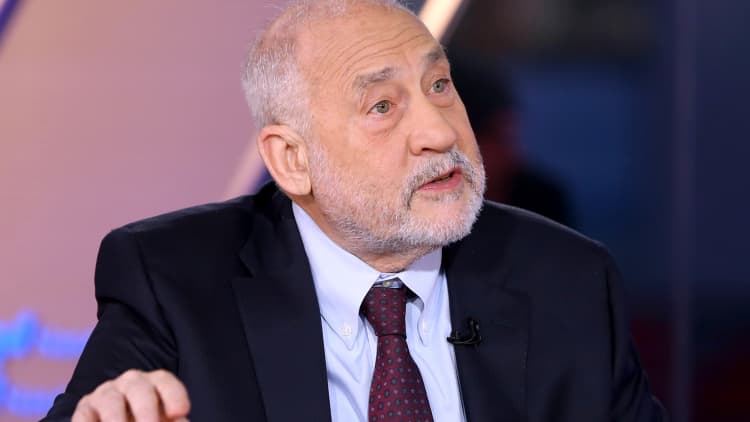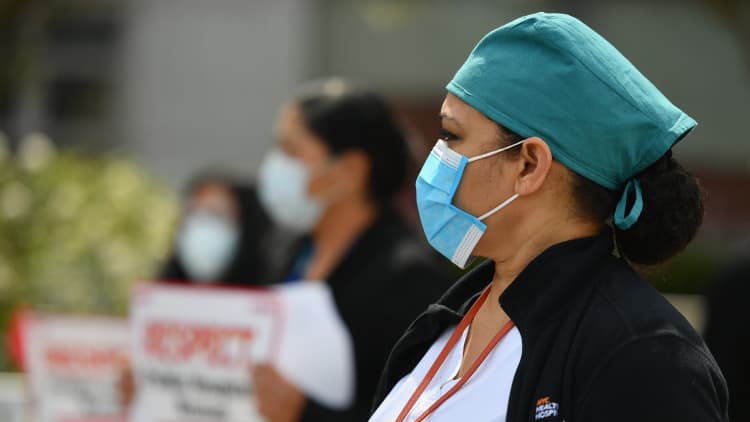Millions of health-care workers across the U.S. are going to work without paid sick leave during the coronavirus pandemic, a study published Wednesday found.
The analysis by the Kaiser Family Foundation estimated that 17.7 million health workers are exempt from the emergency paid sick leave requirement in the Families First Coronavirus Response Act passed in March.
The research found a majority of these employees work in hospitals or nursing care facilities, hot spots for the virus.
"Health care workers who continue to work while sick because they cannot afford to stay home without pay may face difficult tradeoffs between the need for an income and concerns about exposing patients or their colleagues," the report said.
The Families First Coronavirus Response Act, which went into effect April 1, provided federally mandated paid sick leave for up to two weeks for workers coping with coronavirus-related issues. But exemptions in the law have left out large groups of American workers, including millions who are considered essential employees during the pandemic.
Private companies with more than 500 employees, for example, were exempt from the law. The Kaiser study found this provision alone excluded 9.5 million health-care workers from receiving emergency paid sick leave. An additional 8.1 million health care employees qualify for exemptions "at their employer's discretion" based on guidelines provided by the Department of Labor.
"This is a conservative estimate, as it does not include workers in some auxiliary services, such as industries that provide services necessary for the maintenance and operation of health care facilities and that can be exempted under the DOL's guidance," the study said.
The Kaiser research found women and minorities are disproportionately affected by exemptions in the law. It said 75% of the excluded 17.7 million health workers are women, while 39% are people of color.




